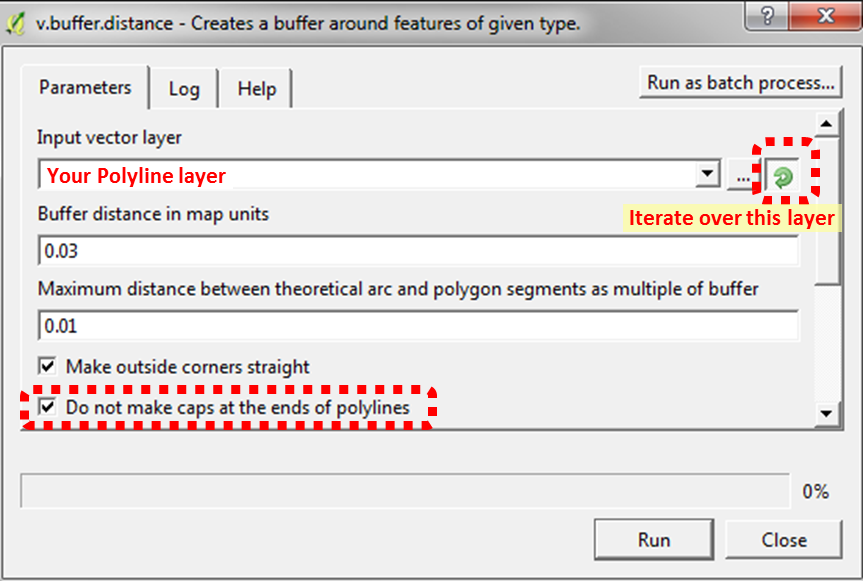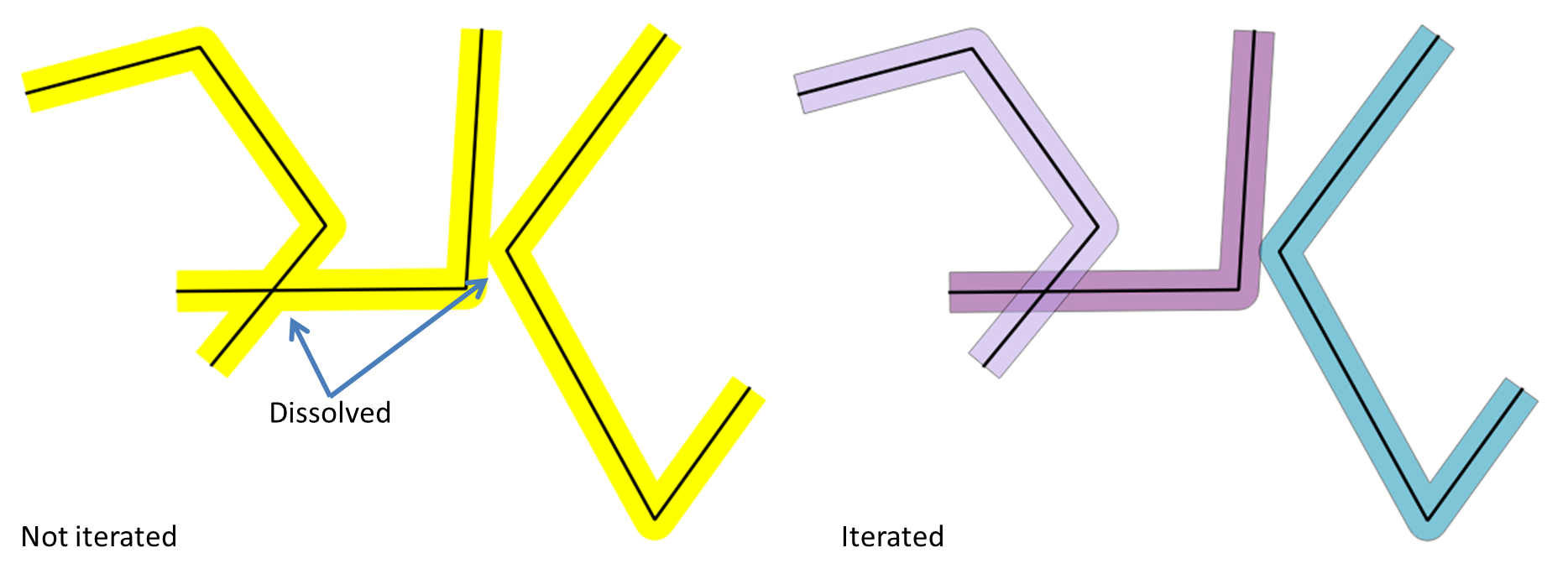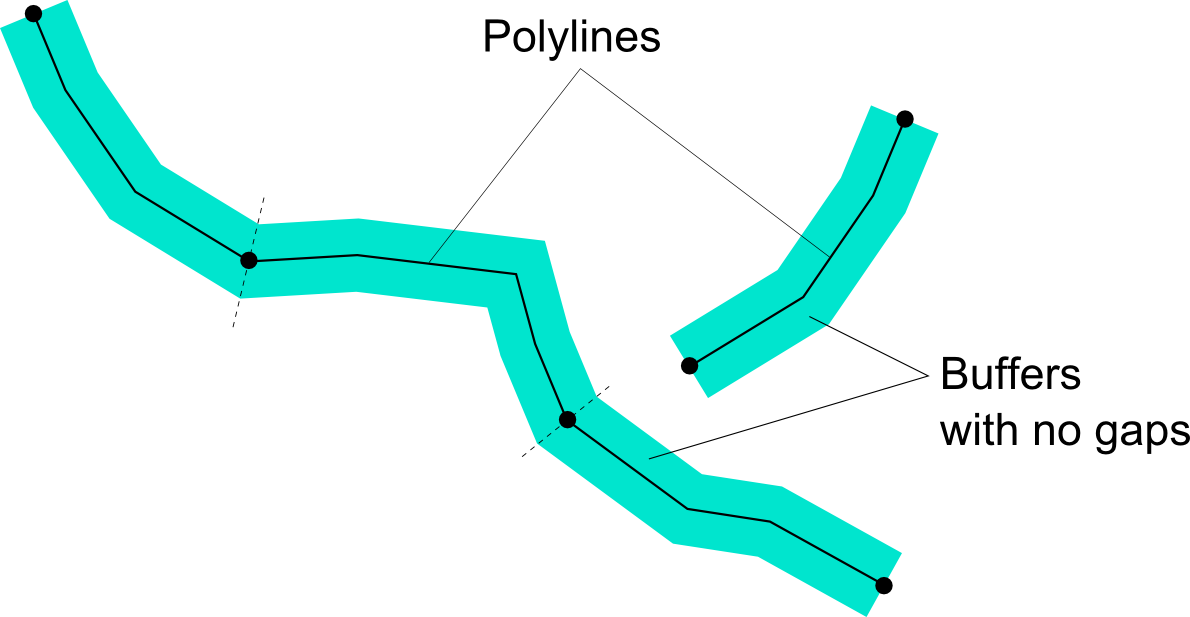I have a projected line layer (Shapefile) in QGIS. For every line segment I want to create a polygon without line end caps. The resulting polygone should not be dissolved to a single one.
I tried fTools buffering tool. This can create a buffer without dissolving, but its not possible to define the line end caps.
I tried also v.buffer of GRASS. This can create a buffer with defined line ends, but I cannot disable the dissolving.
Is there a possibility to have both: not dissolved and without caps at line end? The result should be a Shapefile with polygons (buffer) for every line segment.



